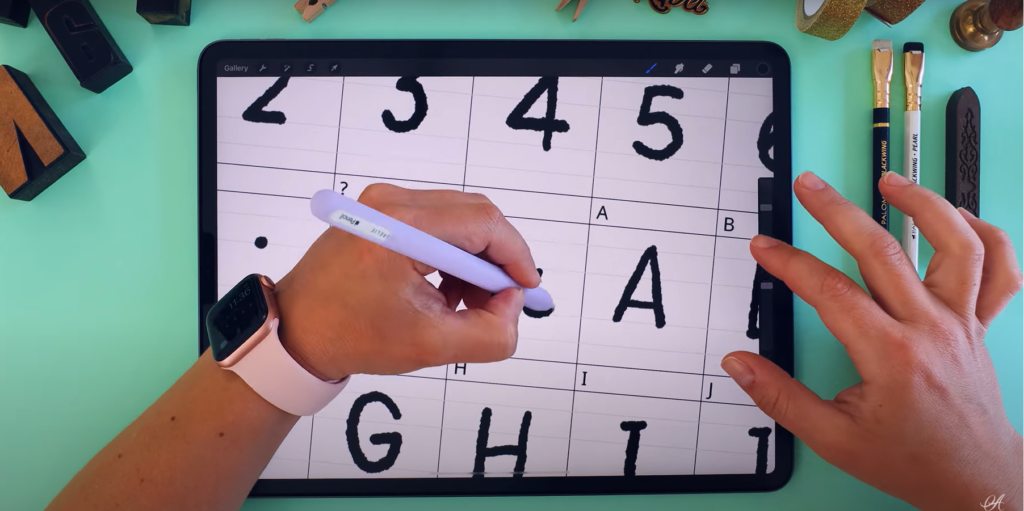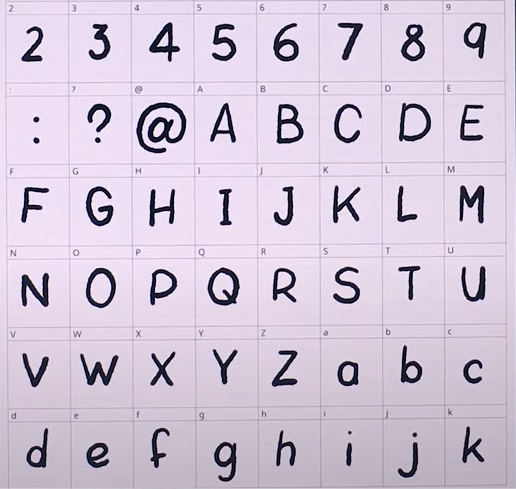How to Create a Custom Font Easily with AI

Typography is a cornerstone of design, and a custom font can elevate your projects by adding a unique, personalized touch. Whether you're a graphic designer crafting a brand identity, a small business owner creating marketing materials, or a hobbyist exploring typography, designing your own font is an exciting endeavor. While traditional methods of font creation involve meticulous manual work, advancements in AI font technology have made the process faster, easier, and more accessible. In this comprehensive guide, we’ll walk you through the steps to create a custom font manually using tools like Calligrapher and Procreate, and we’ll also explore how AI fonts can simplify the process, with a special mention of refont.ai as a go-to solution for effortless font creation.
The Appeal of Custom Fonts
Custom fonts are more than just letters—they’re a reflection of your style or brand. They can make your designs stand out, whether you’re creating a logo, a website, or a personal project. A custom font ensures uniqueness, helping you differentiate yourself in a competitive market. However, creating a font from scratch can be daunting, especially for beginners. That’s where the choice between manual creation and AI font solutions comes into play. Manual methods offer complete control, while AI fonts provide speed and accessibility, making them ideal for a wide range of users.
Step-by-Step Guide to Manual Font Creation
Based on a popular tutorial, here’s how you can create a custom font from scratch using Calligrapher and Procreate. This process is beginner-friendly but requires patience and attention to detail.

1. Research and Inspiration
Before you start designing, take time to explore font styles that inspire you. Websites like MyFonts.com and Pinterest are excellent resources for browsing typeface classifications, such as serif, sans-serif, or geometric fonts. Decide on the style you want to pursue—perhaps a bold, inky look or a clean, modern design. This step helps you define the aesthetic of your font.
2. Sketching Your Letters
Open a blank canvas in Procreate (or another drawing app) and start sketching your letters. Experiment with different letterforms, keeping them simple due to the limitations of Calligrapher, which doesn’t support advanced vector editing. Use guides in Procreate to maintain consistency, and don’t hesitate to redraw letters until you’re satisfied with the design.
3. Creating a Template
Visit Calligrapher.com, create a free account, and select the “Minimal English” option to generate a template with uppercase, lowercase, numbers, and punctuation. Download the template as a PNG file, which includes typographic guides like the baseline, x-height, and ascender lines to help you align your letters correctly.
4. Drawing Your Characters
Import the template into Procreate on a new layer to avoid drawing directly on it. Using a bold, inky brush (like the free one mentioned in the tutorial), draw each character while following the guides. Ensure consistency in stroke width and proportions across all letters. For efficiency, you can copy and reuse shapes (e.g., using the “C” to form the “O”) to maintain uniformity.
5. Exporting and Building the Font
Once all characters are drawn, export the template pages as PNG files from Procreate. Return to Calligrapher, upload the PNGs, and review your characters to ensure nothing is missing. Name your font (e.g., “Cracker”) and build it, downloading the result as an OTF (OpenType) file.
6. Installing Your Font
To use your font, install the OTF file on your device. On iOS, you can copy the file to Procreate’s font folder or use an app like iFont to install it system-wide for use in apps like GoodNotes. This step allows you to test your font in real-world applications.
| Step | Tool | Action |
|---|---|---|
| Research | MyFonts, Pinterest | Browse font styles for inspiration. |
| Sketching | Procreate | Draw letterforms on a blank canvas, keeping designs simple. |
| Template Creation | Calligrapher | Download a PNG template with typographic guides. |
| Drawing Characters | Procreate | Draw letters on a new layer, following the template’s guides. |
| Export and Build | Calligrapher | Upload PNGs, build the font, and download as OTF. |
| Install Font | Procreate, iFont | Install the font for use in design apps. |
Challenges of Manual Font Creation
While manual font creation is rewarding, it comes with challenges:
- Time-Intensive: Drawing each character individually can take hours or days, especially for a full character set.
- Skill Requirements: Achieving consistent proportions and styles requires a good understanding of typography.
- Tool Limitations: Calligrapher’s basic functionality restricts advanced features like vector editing or script font creation.
These challenges can make manual font creation less appealing, particularly for those with limited time or experience. This is where AI font technology offers a compelling alternative.
The Rise of AI Fonts
AI fonts are typefaces generated by artificial intelligence algorithms, trained on extensive datasets of existing fonts. These algorithms analyze styles, weights, and proportions to create unique, high-quality fonts tailored to your preferences. With AI font generators, you can input specific characteristics—such as a bold, geometric style or a handwritten aesthetic—or even upload a sample of your handwriting to create a personalized AI font.
The beauty of AI fonts lies in their accessibility. Unlike manual methods, AI font creation doesn’t require advanced design skills. Tools like these allow users to fine-tune every aspect of their AI font, from letter shapes to kerning, ensuring a professional result with minimal effort.
Benefits of AI Font Generators
Using AI font generators offers several advantages over traditional methods:
- Speed: Create a complete AI font in minutes, compared to hours or days for manual creation.
- Ease of Use: User-friendly interfaces make AI font creation accessible to beginners and professionals alike.
- Variety: Generate multiple styles and variations, from elegant serifs to playful handwritten fonts.
- Consistency: AI ensures uniform proportions and spacing, eliminating the need for manual adjustments.
These benefits make AI fonts an excellent choice for designers looking to save time while still achieving high-quality results.
Manual vs. AI Font Creation: A Comparison
| Aspect | Manual Creation | AI Font Creation |
|---|---|---|
| Time | Hours to days | Minutes |
| Skill Level | Requires typography knowledge | Beginner-friendly |
| Customization | Full control, but labor-intensive | Extensive, with automated adjustments |
| Consistency | Manual effort to ensure uniformity | AI ensures consistent proportions |
| Tool Limitations | Limited by apps like Calligrapher | Advanced features in AI platforms |
While manual creation offers unparalleled control, AI font creation excels in speed and accessibility, making it ideal for those who want quick results without sacrificing quality. AI fonts also come with features like automatic kerning and style variation, which are challenging to achieve manually.
Why Choose refont.ai for AI Font Creation?
Whether you’re drawn to the hands-on process of manual font creation or prefer a faster solution, the goal is to create a font that reflects your vision. For those seeking a streamlined approach, AI font generators are a game-changer. One standout platform is refont.ai, which specializes in generating high-quality AI fonts tailored to your needs. With refont.ai, you can input your desired style, experiment with variations, and download a professional-grade font in minutes. It’s perfect for designers who want to save time or for beginners exploring typography for the first time.
Conclusion
Creating a custom font is a creative journey that can enhance your design projects and showcase your unique style. The manual process, using tools like Calligrapher and Procreate, offers a hands-on way to learn typography, but it requires time and skill. Alternatively, AI font technology provides a fast, accessible, and high-quality solution for creating custom typefaces. Platforms like refont.ai make AI font creation effortless, allowing you to bring your typographic ideas to life without the steep learning curve of traditional methods. Whether you choose to draw each letter by hand or embrace the power of AI fonts, the key is to have fun and let your creativity shine. Start designing your custom font today, and explore refont.ai for a hassle-free experience!